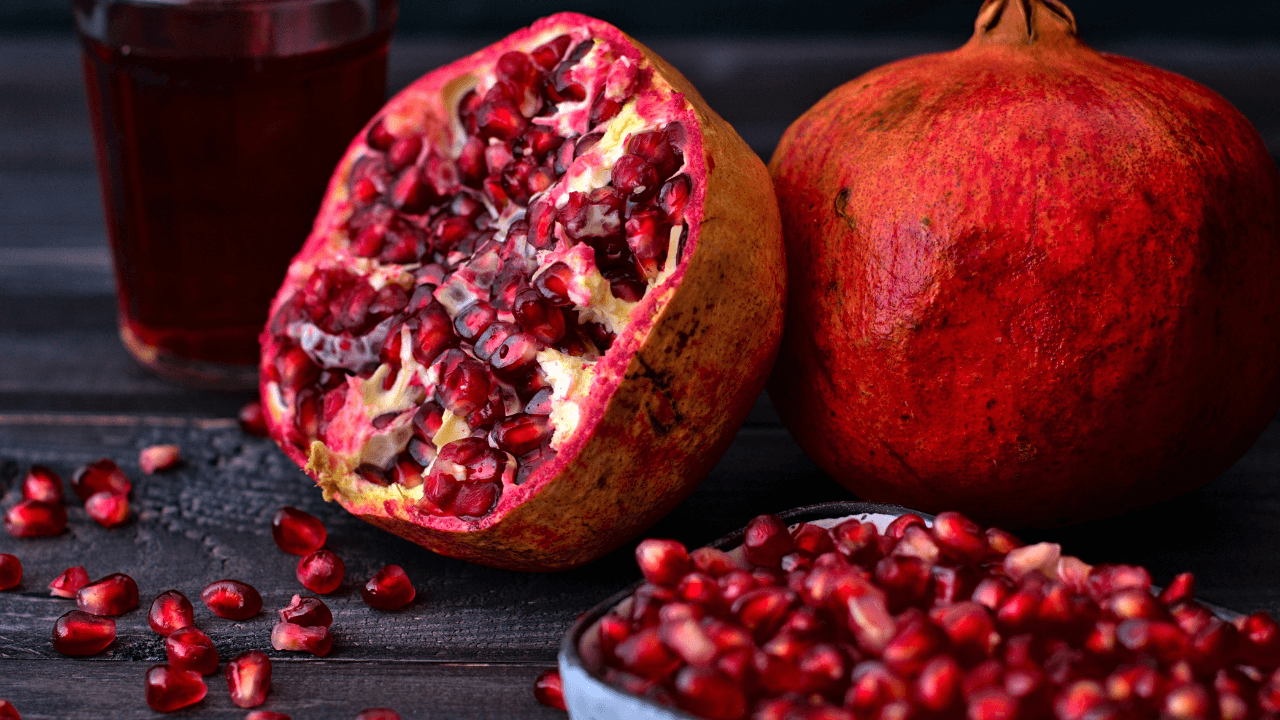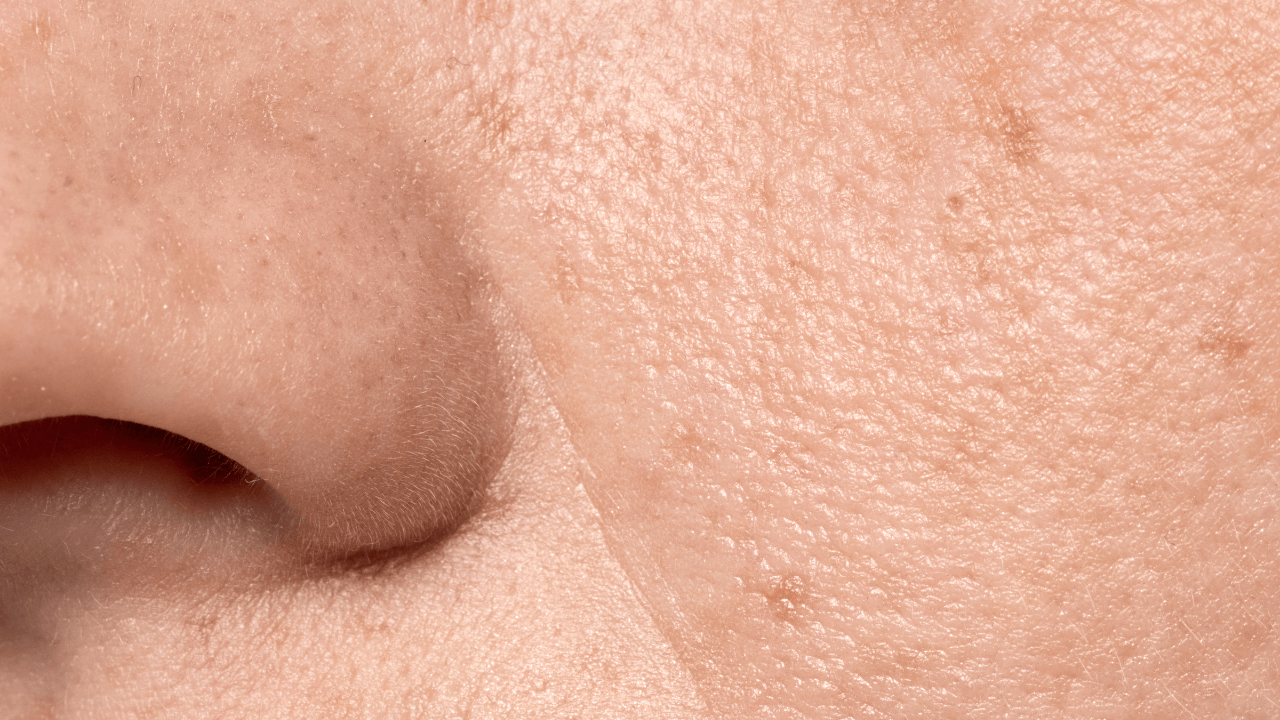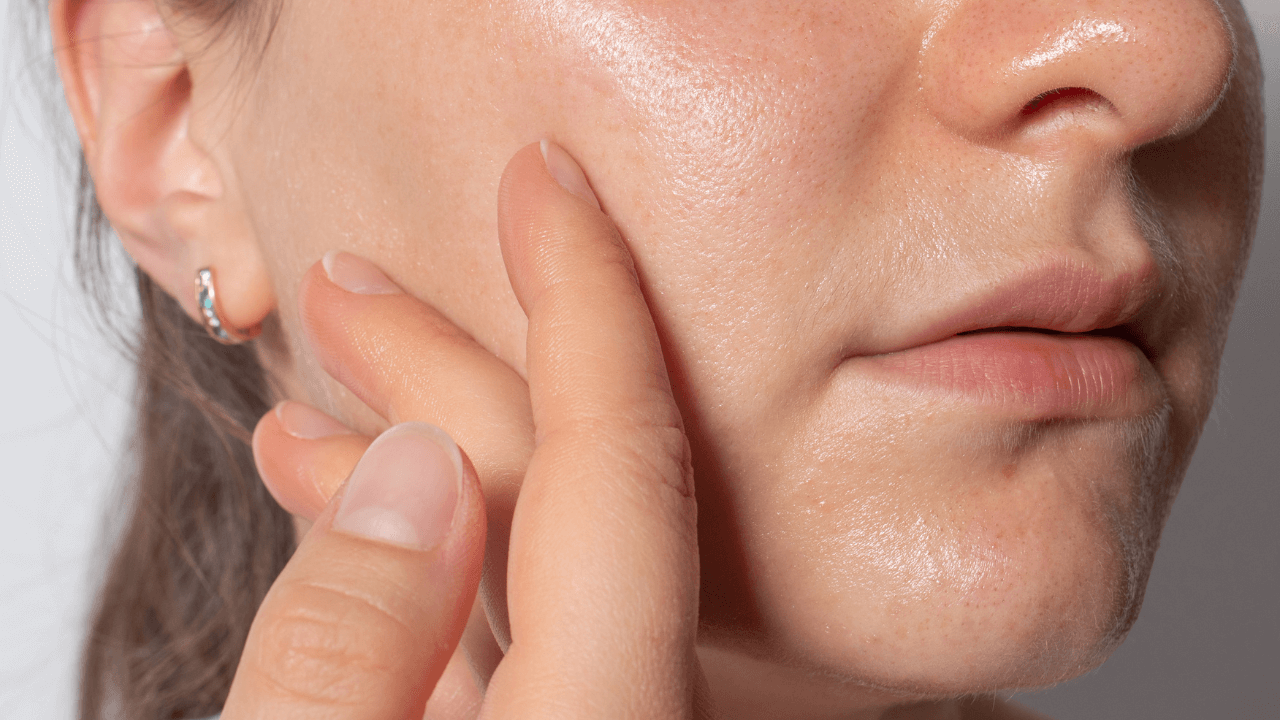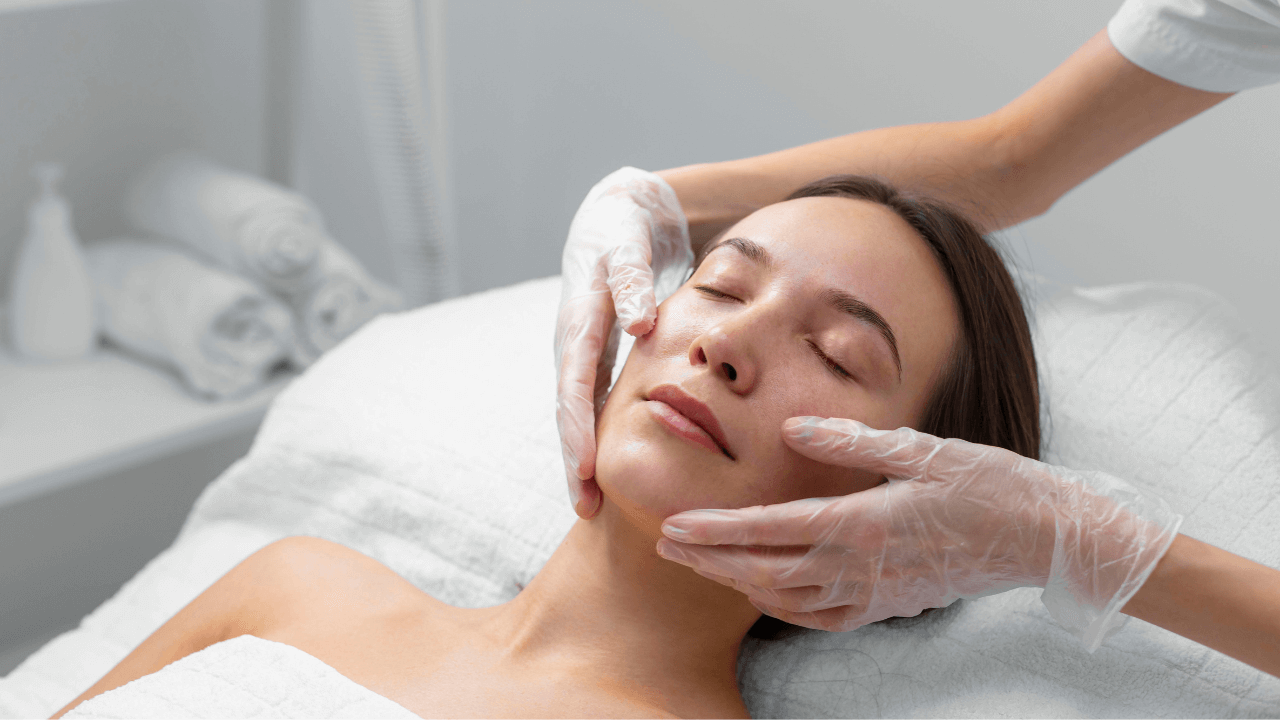Understanding Pomegranate: Nature's Ancient Beauty Secret
Pomegranate (Punica granatum) stands as one of nature's most remarkable treasures for skin health and beauty. This jewel-like fruit, with its distinctive ruby-red arils nestled within a leathery exterior, has transcended its culinary appeal to become a cornerstone ingredient in modern skincare. Rich in bioactive compounds, antioxidants, and essential nutrients, pomegranate offers comprehensive benefits that address multiple skin concerns simultaneously – from aging and inflammation to hydration and cellular regeneration.
The unique molecular composition of pomegranate makes it particularly effective for skin health. Its seeds, juice, peel, and oils each contain distinctive compounds that work synergistically to protect, repair, and rejuvenate the skin at a cellular level. This botanical powerhouse represents a perfect union of ancient wisdom and cutting-edge dermatological science.
Botanical Profile and Origin Story
Scientific Classification:
-
Kingdom: Plantae
-
Family: Lythraceae (formerly Punicaceae)
-
Genus: Punica
-
Species: P. granatum
Natural Habitat and Cultivation: Pomegranate trees are native to a region extending from Iran to northern India, though they have been cultivated throughout the Mediterranean, Middle East, South Asia, and parts of Southeast Asia for millennia. The hardy shrub or small tree thrives in semi-arid environments with hot, dry summers and mild winters, producing its characteristic spherical fruits with their crown-like calyx.
Physical Characteristics: The pomegranate fruit measures 2-5 inches in diameter and contains hundreds of edible arils (seed casings), each surrounding a small, edible seed. These arils contain the juice prized for both consumption and skincare applications, while the peel and inner membranes (known as albedo) harbor concentrated levels of beneficial compounds.
The Historical Significance of Pomegranate
The pomegranate's cultural importance spans civilizations and millennia, often symbolizing fertility, abundance, and eternal life:
-
Ancient Egypt: Pomegranates were buried with the dead to ensure rebirth, while their juice and extracts were used in medicinal formulations for skin infections and inflammation.
-
Greek and Roman Traditions: The fruit appears prominently in mythology, most notably in the story of Persephone. Romans used pomegranate extract for skin protection and healing wounds.
-
Ayurvedic Medicine: For over 3,000 years, Ayurveda has incorporated pomegranate as a "rasayana" (rejuvenative) that balances all three doshas and purifies the blood, directly improving skin health.
-
Traditional Chinese Medicine: Pomegranate has been used to treat skin disorders, reduce inflammation, and promote longevity through its ability to nourish yin energy.
-
Persian and Middle Eastern Practices: Ancient Persian texts document pomegranate's use in maintaining youthful skin and treating various dermatological conditions.
The Science Behind Pomegranate's Skin Benefits
Modern research has identified the molecular mechanisms behind pomegranate's exceptional skin benefits:
1. Unparalleled Antioxidant Protection
Pomegranate contains a unique spectrum of powerful antioxidants that far surpass those found in most other botanicals:
-
Punicalagins: These ellagitannins found in the peel and membrane are among the most potent antioxidants in nature, with research showing they have 3-4 times the antioxidant capacity of green tea or red wine.
-
Ellagic Acid: This polyphenol neutralizes free radicals while simultaneously stimulating the body's own antioxidant defense systems, creating a dual-action protective effect on skin cells.
-
Anthocyanins: These compounds give pomegranate its rich color and provide significant protection against photoaging and UV damage.
Research published in the Journal of Ethnopharmacology demonstrates how these antioxidants work synergistically to prevent collagen degradation and protect fibroblasts from oxidative damage, effectively slowing the visible signs of aging.
2. Collagen Enhancement and Skin Structure Support
Pomegranate directly influences the skin's structural integrity through multiple pathways:
-
Fibroblast Stimulation: Bioactive compounds in pomegranate activate dermal fibroblasts, the cells responsible for producing collagen and elastin.
-
Matrix Metalloproteinase (MMP) Inhibition: Pomegranate extracts help inhibit enzymes that break down existing collagen, preserving skin's firmness and elasticity.
-
Glycation Prevention: The fruit's compounds help prevent sugar molecules from binding to and damaging collagen fibers, a process that contributes significantly to skin aging.
Clinical studies have shown measurable improvements in skin elasticity and firmness after regular application of pomegranate-based skincare products over 8-12 weeks.
3. Superior Hydration and Barrier Function
Pomegranate seed oil contains a rare omega-5 fatty acid called punicic acid (up to 80% of its composition) that provides exceptional moisture benefits:
-
Deep Penetration: The molecular structure of punicic acid allows it to penetrate deeply into the skin while simultaneously strengthening the skin's natural barrier.
-
Ceramide Production: Pomegranate extracts stimulate the production of ceramides, vital lipids that maintain skin barrier integrity and prevent moisture loss.
-
Natural Humectant Properties: Certain compounds in pomegranate act as humectants, drawing and retaining moisture in the skin.
These mechanisms make pomegranate particularly effective for treating dry, dehydrated skin and conditions like eczema and psoriasis where barrier function is compromised.
4. Anti-inflammatory and Acne-Fighting Properties
Pomegranate's unique phytochemical profile offers significant benefits for problematic skin:
-
Targeted Anti-inflammatory Action: Studies in the International Journal of Dermatology have shown that pomegranate extracts reduce the production of pro-inflammatory cytokines in skin cells.
-
Antimicrobial Effects: Compounds in pomegranate have demonstrated activity against P. acnes bacteria, the primary microbial contributor to acne development.
-
Sebum Regulation: Regular application helps normalize oil production without causing dryness, creating balanced skin conditions less favorable to acne development.
-
Wound Healing Acceleration: Pomegranate promotes faster healing of acne lesions and prevents post-inflammatory hyperpigmentation.
5. Hyperpigmentation Correction and Brightening
Pomegranate addresses uneven skin tone through multiple complementary mechanisms:
-
Tyrosinase Inhibition: Active compounds in pomegranate inhibit the enzyme tyrosinase, which catalyzes the production of melanin.
-
Antioxidant Protection: By neutralizing free radicals, pomegranate prevents the oxidative stress that can trigger melanin overproduction.
-
Gentle Exfoliation: Natural fruit enzymes in pomegranate help remove dead skin cells, revealing brighter skin beneath and preventing the buildup that can lead to dullness.
-
Cell Turnover Enhancement: Regular use stimulates healthy cell regeneration for more even-toned skin over time.
Research published in the Journal of Cosmetic Science demonstrated significant lightening effects on age spots and sun damage after 12 weeks of pomegranate extract application.
Optimal Application Methods for Skincare
Professional Skincare Formulations
When selecting pomegranate-based products, look for:
-
Serums with Stabilized Extracts: These deliver concentrated benefits and typically contain pomegranate extract in its most bioavailable form, often combined with complementary antioxidants like vitamin C or ferulic acid.
-
Nourishing Moisturizers: Products that combine pomegranate seed oil with ceramides or hyaluronic acid offer exceptional hydration while providing antioxidant protection.
-
Treatment Masks: Weekly application of pomegranate-rich masks can provide intensive rejuvenation, especially when formulated with additional botanicals like green tea or rose.
-
Sun Protection Products: Pomegranate extract enhances the efficacy of sunscreens by providing an additional layer of protection against UV-induced free radicals.
Effective DIY Treatments
For those preferring natural approaches, consider these research-backed home treatments:
Brightening Facial Treatment:
-
2 tablespoons fresh pomegranate juice
-
1 tablespoon raw honey (with natural enzymes)
-
1 teaspoon lemon juice (for additional brightening)
-
½ teaspoon turmeric powder (for anti-inflammatory benefits)
Apply to clean skin for 15-20 minutes before rinsing with lukewarm water.
Rejuvenating Oil Treatment:
-
1 tablespoon cold-pressed pomegranate seed oil
-
3 drops vitamin E oil
-
2 drops rosehip oil (for enhanced collagen production)
Warm between palms and press gently into skin after cleansing and before moisturizing.
Exfoliating Scrub for Cell Renewal:
-
2 tablespoons crushed dried pomegranate seeds
-
1 tablespoon yogurt (with natural lactic acid)
-
1 teaspoon honey
-
5 drops pomegranate seed oil
Massage gently onto damp skin using circular motions, then rinse thoroughly.
Safety Profile and Considerations
Skin Compatibility: While pomegranate is generally well-tolerated by most skin types, certain considerations warrant attention:
-
Sensitive Skin Testing: Always perform a 24-hour patch test on the inner forearm before widespread application, particularly with concentrated extracts.
-
Potential Interactions: Pomegranate may enhance the absorption of certain skincare ingredients, which is generally beneficial but occasionally can increase sensitivity to active ingredients like retinoids.
-
Photosensitivity Awareness: Though rare, some individuals may experience increased sun sensitivity when using products containing high concentrations of fruit acids found in pomegranate. Daily sun protection is recommended.
-
Pregnancy Considerations: Topical application of pomegranate products is generally considered safe during pregnancy, though consultation with a healthcare provider is advised for concentrated supplements.
Sustainability and Ethical Sourcing
The environmental impact of pomegranate cultivation and harvesting deserves consideration:
-
Water Usage: Traditional pomegranate cultivation can be water-intensive in arid regions. Look for brands that source from sustainable farms using drip irrigation or rainwater harvesting techniques.
-
Waste Reduction: The best pomegranate skincare utilizes all parts of the fruit, including the peel and membranes that might otherwise be discarded, promoting full-cycle usage.
-
Fair Trade Practices: Many premium skincare brands now source pomegranate from cooperatives that ensure fair compensation for farmers in traditional growing regions like Turkey, Iran, and India.
Integrating Pomegranate into Your Skincare Routine
For maximum benefits, consider these evidence-based recommendations:
Morning Routine:
-
Cleanse with a gentle face wash
-
Apply antioxidant serum containing pomegranate extract
-
Follow with pomegranate-infused moisturizer
-
Finish with broad-spectrum sunscreen
Evening Routine:
-
Double cleanse to remove makeup and impurities
-
Apply treatment products (retinol, acids) if used
-
Follow with pomegranate seed oil or night cream
-
Consider a weekly pomegranate enzyme mask for enhanced renewal
Conclusion: Pomegranate's Place in Modern Skincare
As modern dermatological research continues to validate ancient wisdom, pomegranate stands at the forefront of botanical skincare ingredients with proven efficacy. Its comprehensive benefits address multiple skin concerns simultaneously, making it suitable for virtually all skin types and conditions. From preventing the visible signs of aging to treating acne, from hydrating dry skin to evening out hyperpigmentation, this ancient fruit offers modern solutions through its remarkable phytochemical profile.
By incorporating pomegranate into your skincare regimen – whether through professionally formulated products or thoughtfully prepared DIY treatments – you harness the power of a botanical that has stood the test of time across civilizations and continues to impress in contemporary scientific investigations. Its ability to protect, repair, and rejuvenate the skin makes pomegranate not merely a trending ingredient, but a timeless cornerstone of effective, natural skincare.



